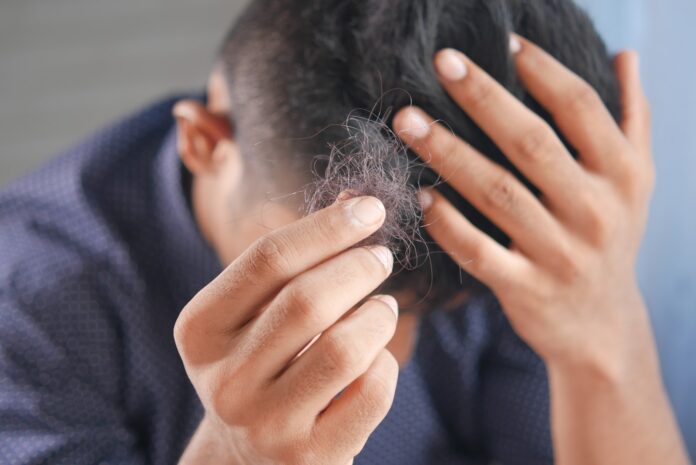
Nobody wants to apprehend how they’d look when they start losing hair.
Hair loss can have many causes. So one must consult a physician and ask about their diet, hair care routine, and lifestyle changes. The doctor would generally ask about their medical or family history before diagnosing. They might prescribe blood and pull tests to uncover the cause of hair loss and determine the stage of hair shedding.
The ugly truth is that no matter what, your hair follicles will begin to shrink and eventually stop growing hair when you reach a certain age. One can either accept the truth and move on with their life or devise ways of trying hair regrowth treatments. It’s ultimately up to an individual and their life choice.
To prepare for regrowth treatments, one must first carefully observe/ study the process of their hair fall. If it falls out gradually or abruptly, it needs immediate care to prevent permanent hair loss or requires treatment to regrow.
Knowing the advantages and disadvantages of hair regrowth treatments help when hair loss or shedding happens unexpectedly and affects your life differently.
Keep reading to know why you may have to try one.
History of hereditary hair loss
In a family of a boy and girl child, it’s wrong to assume that a girl would inherit traits only from the mother and the boy from the father. A girl-child can also develop premature balding like her dad while the mom has a head full of hair.
Hereditary hair loss doesn’t differentiate between genders in a family. So it isn’t uncommon or unusual for a woman or man in the prime of their life to want a hair regrowth treatment. Maybe they wouldn’t have a thick, lush head of hair again but would like to hang on to what they’ve got. Be it surgically or with oral pills; they can try hair regrowth treatments to boost confidence and beautify their appearance.
People with hereditary hair thinning can use some treatments to slow down or stop the problem and maybe even grow back some hair they thought was gone for good.
Do note that there’s no guarantee of the treatments’ effectiveness. The user or buyer has to risk the possibility of failure.
Medication side effects
Ask your doctor if hair loss is a possible side effect of the prescribed medicines for your medical condition. Some medications can lead to inflammation and, consequently, a scaly scalp.
Brushing the hair too often or picking scaly skin can further increase hair loss. The problem with hair fall is common in people who are taking chemotherapy drugs for cancer and is often severe, causing people to lose most or all of their body hair. Studies have also reported side effects of disease-modifying treatments, including teriflunomide, mitoxantrone, alemtuzumab, and daclizumab, used in multiple sclerosis.
But it would be best if you didn’t stop taking the medication before talking with your physician because abruptly stopping some drugs can cause serious health problems. The severity of drug-induced hair loss depends on the type of drug and dosage, as well as the user’s sensitivity to that drug.
Although hair loss caused by a medical illness and prescribed drugs may not be reversible, one can try lasers for hair growth or some non-invasive treatments to retain whatever is left.
Mental health
There are many types of hair loss caused by various reasons.
If you cannot look yourself in the mirror due to your bald spots or scalp scarring, then a hair regrowth treatment or styling is highly recommended. When you like your reflection, you learn to embrace the change you must live within the long run.
Conclusion
Hair growth solutions have been a boon in this modern world. The ability to choose from a wide price range of regrowth treatments gives a user the flexibility and freedom to choose their appearance based on affordability!








